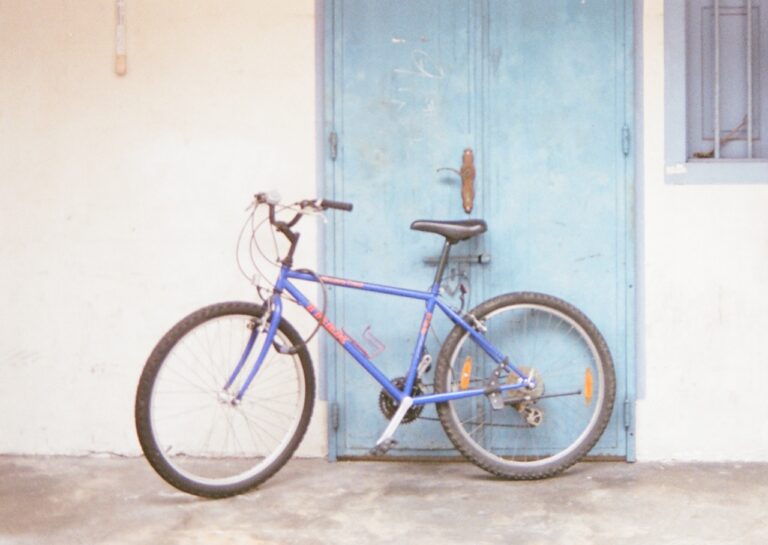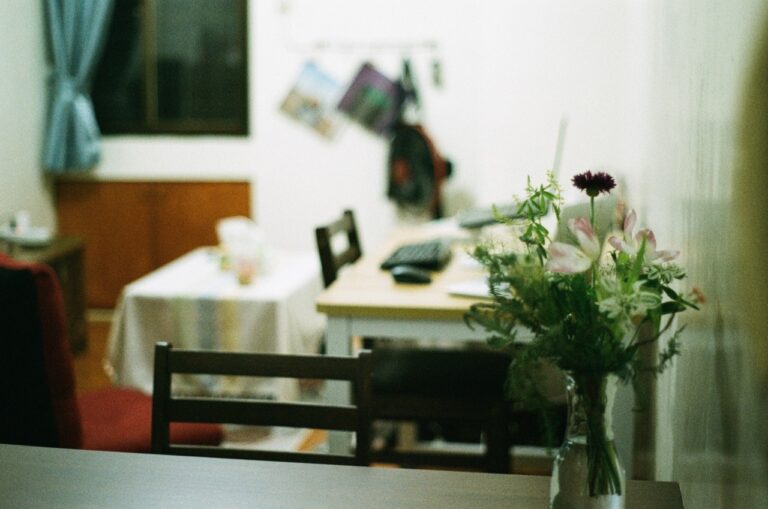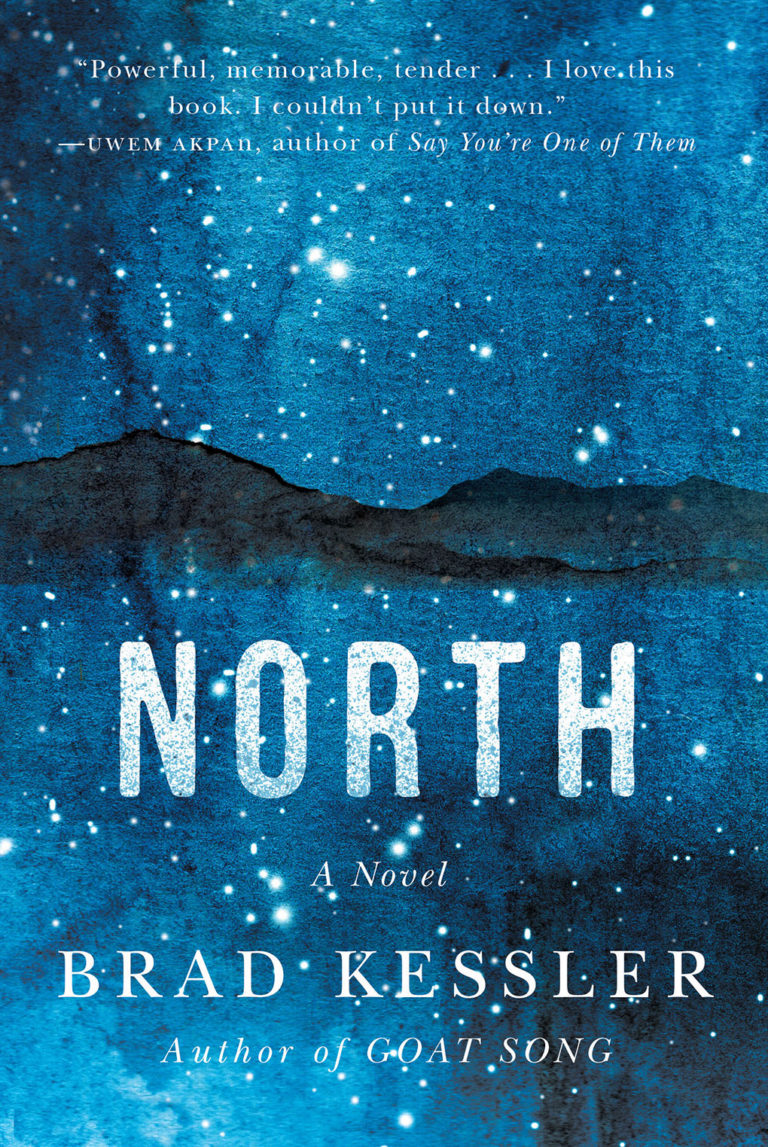The last time Ramiro Areyzaga was in Mexico was so long ago it was more like a fairy tale. That was Coyoacán, which is Mexico City but which isn’t anything like it. He was seven years old and had traveled with his mother and his sister and brother, which also made it such a happy memory. A place of lush green shade, both a forest of trees and a jungle of huge waxy palm leaves, and a zócalo of marionettes and dancers, musicians and painters, with toys and balloons for the little ones and shawls for his grandparents. And of course the church, like none he’d ever seen since, all the cool stone space, and God—which he never got over, so much so it stayed inside him, quietly, the rest of his life, like it was the word México itself. And there were candied apples and cups of fruit for sale everywhere, like piña, coco, granada, papaya, mango, guava, and the sweetest juice squeezed from the ugliest oranges. It was his sister who was so afraid of them, because their peels seemed faded and blotchy and had black spots and were small, nothing like they were from the markets at home, where they were polished and bright as plastic. She refused to drink any, so he and his brother loved it even more just to torture her. Though they talked about going back whenever they were together, none of them ever did, and now he was the only one still alive.
What he did first to come back to Mexico was go online. He thought of Coyoacán, and when he looked, it was that there were so many possibilities, there were too many. There was only one ad for a room in Oaxaca, misplaced, it seemed, in the Mexico City listings. It was written in a less-than-perfect Spanish, which he could tell even if he’d lost so much of his own first language. He knew very little about Oaxaca, really—better said, he didn’t know anything but the name—so he read a little. What he liked was that the weather was said to be consistent all seasons, ideal, and that was it: decided. He wrote a query and in a few days came a reply. It was a departamento owned by a Sra. Noemi Luisa Campos Villegas. She lived with her daughter. It was in her house. It was newly carpeted, with a single bed, a sofa, two chairs, a table, and a lamp. He would be allowed to share her refrigerator and kitchen. It was very nice, she wrote, and, yes, it was still available.
He got into a van from the airport, which filled with workers, men with new and old straw hats, and a young couple. All of them were so short. Ramiro was tall, as Mexicans go, and his legs were so badly confined behind the driver’s seat that he had to pull the left one up with his hand so it wouldn’t cramp. A younger boy—he was maybe nineteen—was there, too, and asked him where Ramiro was from. The boy was from a pueblo, on the mountain below the ruins of Monte Albán. The pueblo had a name Ramiro couldn’t exactly understand, even though he heard the word twice. The boy had been in Santa Maria, California, picking strawberries. There was so much work, he said, and he would be going back in a week. He was proud. The boy would have liked to talk more, but Ramiro didn’t. Not to be impolite. It’s only that he wanted to be quiet. He started listening to the couple sitting behind him. Sometimes it did sound like Spanish, but also it didn’t, not all the words—even the words that did, didn’t really. Soon these other passengers were dropped off and the driver found the address of his rental near Tinoco y Palacios, off Quetzalcoatl. The taxista was kind and carried one of his two bags down a rock pathway where they could see numbers.They found it. Ramiro tipped him big with a twenty-peso bill.
Sra. Campos came down her stone steps, greeted him without much emotion, and then led him to a few more steps and opened the padlock for some arched, wrought-iron gates. Then she pushed open a wet, tired wooden door to show what was now his home. It was a basement in every way, with a faint scent of mildew and dust. The carpet was indoor- outdoor, and was probably not old, though it was hard to see it in the darkness. She had turned on the two switches. The small, clear bulbs were maybe 25-watt. She showed him his bedroom, his bathroom. A frayed towel was there for him, and there was a tiny square of soap, wrapped, nameless, from what was probably a hotel. At the small wooden table, with two chairs, where she had also put a bouquet of assorted flowers to welcome him, he counted out the agreed-upon rent money. She smiled to herself like it was a reward. She led him over to the interior stairs that climbed up to another door. That was the entrance to her home and the kitchen he could share. They went in. Her home was spacious, with tile floors and modern furniture, high walls with many picture windows, and even original artwork on her interior white plaster walls. Her daughter, Elda, was there. She was unbashfully excited, as though Ramiro were a new friend. What is your name? Where are you from? What does that look like? What do you do? She was learning French, not English, she told him, but she wanted to learn English, too. Ramiro could see that Sra. Campos wanted Elda to be still, but resisted saying too much these first moments. She apologized, explaining that Elda was eight. Now she told her that she needed to calm down and go to her room, and, pouty lips aside, she disappeared.
The kitchen was modest and cramped, and so was the refrigerator. Sra. Campos made a small space for what he wanted in it. She showed him where there was a Teflon pan for eggs and where he could get a plate. She was very specific, very precise. There was a washing machine and a dryer, and she patiently showed him all the necessary plugs that would need to be unplugged and plugged, then plugged and unplugged, and the hoses that would need to be hooked and unhooked, and so on. These were all opportunities, he knew right then, that would not be good to share with Sra. Campos—better to find a restaurant, a laundry. He thanked her and said good night and found his stairs back down.
There was so much in his life he wasn’t sure of anymore. He was tired, he wasn’t really tired. Was he hungry? He could be, and he could skip it, too. Mostly skip it. There was still one thing he really planned, and that was walking. He wanted to push himself, walk like never, to drop from that tired if that’s how it was to be. And he began, a long way down Tinoco y Palacios until it changed names a few times, and then a long way back up, on the raised sidewalk, a cool night, alongside the buses and cars and taxis and motos, all the way down the two-lane street, the doors of both homes and stores closed and locked, dodging here and there the protrusions of wrought iron or cement sill around a window, careful not to step inside a hole or trip on a chipped curb. The night was already so uniquely dark that he wanted to walk with his eyes upward, until he heard what sounded like a parade coming toward him from up the hill. Students had gathered next to Santo Domingo, lighting rocket fireworks that whistled and blasted so loud they set off car alarms, and were joyous about what seemed like marching music led by a tuba—they sang and danced along to many that were their favorite hits. Ramiro sat long after they all left.
Before he finally went back to his new home, he saw a white stand lit up especially bright in the blackest night with virtually no other light competing. While one of the black-haired women made balls of masa and pressed them into tortillas, the other, beside a coved iron disk, hot from beneath the red embers at the top of a barrel drum, dropped cheese and spooned a sauce of tomato and folded. There was a TV on a welded rack of the stand—showing a novela from Mexico City—and Ramiro sat on one of the plastic white stools beside a family. When he asked what they offered, the younger woman gave more names he didn’t know. What goes inside? There were options of cheese or beans or chicken—no tasajo this night, no beef—with yerba santa or flor de calabaza. He pointed to one warming that he had seen her assemble— like that one. He ate her tlayuda—what he would’ve called a quesadilla—as if he were hungry, though calmly and slow, because it was how they all were, even as they talked.
He smacked his head on the low arch that fit around the wrought-iron gate to his new home. He lay down on what was not much of a bed. Maybe the smallest he’d ever tried to sleep on, and a mattress that seemed thinner than a seat cushion. The pillow was even thinner. He finally took out a warm coat and rolled that up for his head. Because the floor of his basement departamento had the incline of the hill, the mattress slid whenever he moved. He was determined to stay as patient as one of the zapotecos he’d been encountering since he had arrived. And this felt just right, too, wordless spiritual advice. The test was when a dog started barking and whining, sometimes very close, sometimes a little farther away, and though he slept, he slept poorly.
The morning came chilled and there was only a little light drawn in. He scraped his knuckles on the ceiling changing out of an extra sweater he’d put on to keep warm. The ceiling was only an inch above his head, and plywood lines that made little concrete ridges caught one knuckle and it bled. He went into the bathroom. It was small, too, a few inches wider than the commode. The shower, he found, had the same inch or two on either side of his shoulders, as it did in height. He went out, ducking the low arch, out his pasaje toward the street, when he was stopped by a small, dark man with a chair outside a store whose name seemed to be only Abarrotes.
“Good morning,” he said, standing up slowly, formally in style and intent.
“Good morning,” Ramiro said.
“Aren’t you the American living in her home?”
“Yes,” he said, “in the home of la señora Campos.”
“How good, how good,” he said. “You know, I’ve been
to the United States. Two times.”
“Really?”
“Yes. The first time, Fresno, California. The other, Minnesota. The fields. Cold, it was very cold there. I didn’t like Minnesota.”
“I can imagine.”
“My family is from Zimatlán, and it gets cold, but not cold like that. Now I live here.”
“A business owner.”
“And you?”
“My family started in El Paso, but most of my life in Pico Rivera, Los Angeles.”
“How good, Los Angeles. How good.”
“Yes and no. It’s more beautiful here in your country.”
“I have family who have children born in the United States.”
“Really?”
“You are not like the tourists who visit. You come to see home.”
“Yes and no. I’ve never seen Oaxaca before now.”
“You fit?” He was looking back at the departamento, away from the street. “You are large for the space, aren’t you? More like an American.”
“Seems so. Maybe.” “I have seen it. Good for one my size, but you . . .”
“Ramiro,” he offered.
“I’m Benito,” he said.
“Like the president.”
“Juárez, too, yes.”
“That’s beautiful.”
“I’m here all the time. You can come into my store.”
“Very generous. When I need something.”
“At your service. You only have to tell me.”
“Thank you, Benito.”
Ramiro walked until he found a place for coffee on Morelos that he especially liked. It offered everything from molletes with beans to bagels with cream cheese and this time, the first time, he ordered a mollete, because he loved French bread, though he really only wanted some coffee. He would read as well as he could the newspaper that was sitting there. And then he would walk in the warming sun until many of the city streets and buildings looked familiar to him because they were like the others.
When he got back that first morning, Sra. Campos was at her car, about to leave.
“Hi, Ramiro!” said Elda, inside, in the back, excited.
“Everything’s fine?” Sra. Campos asked. “Do you need anything?”
“Nothing. Well. There is a dog. That barks.”
“It’s Loli.”
“Loli!” cheered Elda. “Mi loo-lii, mi loo-lii. . . .”
“Elda, please! Settle down! Loli only . . . needs to know you . . . that you are living here.”
“Then, it’s your dog.”
“Yes,” she said, still upset with her daughter. “She won’t bother you,” she told him.
“She won’t?” he said.
“She only needs to know you, then she will be as always.”
It was, in his way of deciding to come here, better that there wasn’t much inside the departamento to keep him in the mildew must, without much light. By late morning, the bright sun became too warm, and Ramiro learned to walk the sidewalks on the shady side, stepping around the women in the red dresses of thetriquis, or the mixtecos, or zapotecos in their bland aprons and long skirts, arms lifting necklaces or rebozos or spoons, selling like beggars, or quickly passing with baskets balanced on their heads. Or the men with those narrow-brim, round straw hats, their eyes making the pitch, showing paintings or hammocks or shirts. In thezócalo, away from restaurant tables and chairs under the colonnades, Ramiro walked around the laid-out tourist crafts and pottery, around the stands of fresh corn and burgers and fries—elotes or esquites, hamburguesas and papas—and popcorn and chicharrón, dodging and bumping women and men and children and cars near the mercado with fruit, piles of scissors, toys, or grasshoppers in chile or natural, nopales, radishes, flowers of every kind and color. Musicians played the accordion, the violin, the marimba, the guitar. A man pushed a cart of live chickens; another, candies. Away from the church, a demonstration: ¿Por qué los Lopecinos y los Hernández no? Beside the church, they gathered around a clown this day and around a mime painted silver another. Ramiro was invisible passing the American, French, English, and German students in their shorts, sandals, headsets, and packs.
He found an inexpensive full-menu comida corrida for an afternoon meal. He picked at it. If he was hungry later in the evening, he went to the stand for a tlayudaor mamela. But he began to always stop where one lady sat, a few blocks from the Templo de Santo Domingo. She would sell fruit in a plastic box that in the States would be for a take-out sandwich.
She had much, and at first he’d so often get the coco con chile y limón, that that’s what she, from then on, said to him first, after she smiled so happy that he came to her again.
“Hello!” she said, and she reached for the box with coco. “Coconut with chile and lime, I have it right here for you.”
“How good, thank you, but today maybe I will try the papaya.”
“Get them both, young man,” she said, squeezing lime on the fruit. “You can.” She looked at him.“You should.”
She was probably not so much older, though any would call her a grandmother, and she could be very old. It was hard for him to know with these zapotecos. She’d told him she had been orphaned at seven and worked thirty-eight years at a puestoa few blocks away, but once she hurt her leg and couldn’t stand all day anymore, a year ago, she started selling her fruit at this corner, closer to where she lived, sitting at this corner.
“Maybe tomorrow,” Ramiro said. “Today, only the one.” Some days he would buy two, but since he didn’t have a refrigerator, he would throw what would be one away. Since it was only a few pesos, sometimes he bought the unnecessary box just to please her. It was almost as if she were his only friend here.
“How are you today?” he would ask about everyday.
“My body hurts,” she said once. “I had to get up at three in the morning.”
“That is early,” Ramiro told her.
“I had to get water. I had to bathe myself.”
“So early?”
“Yes, and the water was cold.” She tightened the blue and yellow shawl she had around her. “I am still cold.”
“Maybe you should set up on the sunny side,” he said.
“But I have to care for the fruit,” she explained.
That was a day he bought two, and she gave him a small bag of peanuts with chile on them as a bonus.
When he reached the pasaje to his new home, Benito was there to greet him. His store was where he bought his water and toilet paper and sometimes a newspaper to take inside with him to read in the yellow lamplight at the table.
“How are you, Ramiro?” Benito would say, standing up from his chair. “How was your day?”
“All fine,” he would tell him. “Thank you so much.”
“How good, how good.”
There had been one bad day. For some reason, he couldn’t open the padlock at his gate. He was tired because he’d walked for so many hours that hot day. His feet hurt and his legs ached. He needed to go to the bathroom. He was sweaty, and it was becoming as dark out as it would be there inside. He felt unnaturally confused, could almost convince himself that the key had been changed somehow, or it wasn’t maybe the same lock. Like time itself was off and wrong. He had stopped taking that pill weeks before he’d gotten here. He’d been told that this could be how it would come at him, that it would get harder and harder, he would tire, and he would want only to sleep very deeply. Not knowing what else to do, he went for Benito, who came back there with him.
“I’m afraid I’ll break the key,” Ramiro told him.
“It’s dry, the lock,” Benito said when it clicked. “I’ll spray some oil in it.”
“Thank you, Benito.Thank you so much. I’m sorry I had to bother you.”
“Are you all right?” he asked.
“I think so, yes.”
“I don’t think so,” he said. “In there, it doesn’t fit you.”
So much had improved since then, though. Just as he would learn to sit down when he was changing his shirt to not bang his knuckles on the ceiling, he adapted to his home in other ways. His eyes, with the light of his memory, began to see more and more in an amp of bulbs no stronger than candles, and he showered with an especially careful calisthenics for washing his feet or hair. At first it was only the newspaper he bought to read at the table. But in a dimmest corner, where he couldn’t help but finally look, on a limb of storage shelves, he had dusted off old, oversize books, weathered and smelling, too, with fortified bindings stamped and gilded, built like trunks shipping out for a king or queen. There was a 1940’s atlas, with both topographical and political maps, even with streets and monuments of certain cities in Europe, North and South America, and an ornately typeset La Historia de México: Conquista y Revolución, and several odd-lettered volumes of an encyclopedia of science. Best of all were several photo albums: the oldest photos, golden and gray, professional and from a studio, certainly of Sra. Campos’s family, all set on pages with gummed corner holders; the newer, Kodak black-and-whites, of more recent years, many with deckle edges, of her as a baby, as a child Elda’s age, and then as a serious-minded teenager, and then with the young man who she probably had married and then moved with here to Coyoacán until . . . their lives changed somehow, why Ramiro would never know, because he only waved hello and goodbye and paid another rent.
The barking had ceased after only a couple of days. He had learned that whenever it became time for Sra. Campos and Elda to go to sleep, their retriever was put outside. And Loli came right to his bathroom window and slept against it because there was a smoothed, rock surface, not dirt, for her to lie on. And it was true that she cried when she heard him, but it had become a whimper for him to open that window. “Loli, Loli, Loli,” he would sing. She would wiggle, squirm, and squeal about seeing him, pushing her head between the wrought-iron bars, sniffing his hair, trying to learn whatever he’d done wherever, while he patted and cuddled her head and snout. Unless the night was too cold, he left it open for her to see him on the bed and so he could see her, too. And many times in the middle of the night, after the bed had slid too far and he had to get up to push it back, he would say her name, Loli, so that she would whine just a little for him—and this would even help him sleep.
“Good morning,” Benito said, standing from his chair. He did have customers, even if Ramiro never saw any himself. “How’d you sleep?”
“Good, thank you.”
“How good, how good,” he said. He looked at Ramiro like he wanted to say more.
The air was clean, the sky as blue as a painted wall. Much time had passed and he felt fine. Like he was fine. Like he was even better. Which, as he understood it, wasn’t supposed to happen. So before he stopped for coffee, out of curiosity, he visited a pharmacy. It wasn’t that he wanted it. He was not going to take it anymore, ever. He only wondered if. He waited by the glass cases for one of the women in the white smocks, and when it was his turn, he gave her the name of the drug. She looked it up. No, she told him, it was not available. No, she had never heard of it. Possibly he had the name incorrect. She even offered to let him look through the pages of their book.
And so he walked on. He stopped for coffee, pan tostado, and he read the daily news. He felt he was getting better at that, too. It was a Sunday. He left the café, and, as always, he walked to get tired. He walked east past the Periférico, the boulevard that circled the city, and then, when it ran out of sidewalk and just about street, he turned back. A little tired, he was glad to rest at a light at the Periférico, where a bus was also stopped. He decided to get on. He stepped up the bus stairs, not sure where exactly it would be going, but this pleased him, too. The driver told him he’d collect later. And so he drove. Most of the bus curtains were closed, so it was hard to see out, though they were traveling east, the northern mountains alongside the road. Few talked, though those who did were quiet about it. It filled with more small, dark men carrying day bags and straw hats, and small, dark women with pink nylon shopping bags and shawls and little kids, smiling, curious about everyone. When the conductor came for the money, Ramiro didn’t know where his stop was. The man laughed like Ramiro only got the name wrong and said he owed six pesos. When he decided to get off where many others were, both the conductor and the driver shook their head no. The crossing he wanted was ahead, each assured him. And when they got there, they told him, and he got out. It was a concrete overpass and a road leading north toward the mountains. He started walking until a taxi stopped him. It was full of a family—two children, a grandmother, a grandfather, a young mother—but the young driver made room for him in the front passenger’s side. He had stylish hair, pomaded so it was wild in all directions on the top.
“Five pesos,” he told him.
“Does it come with beans and tortilla for dinner?” Ramiro asked.
They all laughed. “If you want,” the driver said, “we can serve you black beans, not the brown ones you eat up there, and my family can make you much more.”
From the backseat, they all smiled and agreed.
“We have good food, honest,” the driver said. “But you probably came for the blankets.”
“Blankets?”
“It’s why everyone comes here.”
“Here?”
“Teotitlán.”
“I didn’t know,” Ramiro told him. “I was on the bus, and then I got off. I thought I was in California.”
They all laughed. It made them all happy, like they would tell the story later. They drove up the road and wound around some well-made village streets and then he stopped.
“Here it is,” the driver said. “But if you want to eat . . .”
Ramiro wanted to, but that seemed like too much. “Maybe later?” he said. “Where do I go?”
“It’s only a few blocks up.”
“What’s your name?”
“Francisco,” he said. “Frankie, in English. I was in California.”
Ramiro told him his name and thanked him.
“Ask for me,” he said, “if you need a ride back, or if you want to stay.”
It was going dark. He passed a couple booths still open for their dyed and woven blankets and almost passed under the high entrance gate of the churchyard, hesitated, and instead went on where he saw people. It was a basketball game, full court, on what might have been the razed and cleaned foundation floor of an ancient, large building. Each team had modern uniforms, and there was a referee in stripes with a whistle, and the few people along the sides cheered, not loud, when a basket was finally made. Church bells began ringing. He looked behind and saw a young man pulling the rope from the backside of one of the towers. In the sky over the church was the moon in crescent, with two stars hung beneath it, and the sun, setting, was decorating the sky like it was one of their blankets.
Instead of attending the evening church service, he walked until he found what was a restaurant. He took one of the plastic chairs and ordered a water as it became fully dark. He asked the owner if he knew the taxi driver Francisco, which of course he did, because everybody knew everybody. The owner flagged down a little moto, an enclosed three-wheeler with two seats in the back, and they bounced through rutted and dug-up dirt streets. He stopped behind Francisco’s taxi. He was chewing, holding a half-eaten tortilla as he came out of the brick house.
“We already finished dinner,” he told Ramiro.“We al- ready ate all the beans.”
“If you drive me back, we can stop and I’ll buy you a hamburger downtown.”
“Downtown Oaxaca? That’s a lot of pesos, güey.”
“That’s good, right?”
“I’ll take you,” he said.
Ramiro got in the back; Francisco’s wife got in the passenger’s side. She was maybe a year younger than him, eighteen at most. He took a couple of full, cloth-covered buckets of masa. Francisco drove slow on a dirt road so ungraded it was impossible to talk, a road that followed along open fields of chopped-down corn and nothing else, which eventually set them aside rock and mud walls too high to see above, through more fields and into another pueblo, where the road leveled. It was his aunt’s, where he parked to drop off the buckets to her. There was a double-hinged metal gate wide enough for two cars, and a crowd of children held one open. A black and white mutt had approached, barking.
“Don’t be nice to that dog,” one of them told Ramiro. “He is a dirty, bad dog.”
Even the dog seemed to understand, and squirmed both with fear and for forgiveness.
“He only wants love,” Ramiro told the children. “Don’t you?” The dog wagged but was afraid to get too close.
They all laughed. “That is a bad, dirty dog,” the same bigger girl said. The smaller ones laughed more.
“I live with a bad, barking dog, too,” Ramiro told them. “My Loli also gets too dirty.”
“Loli!” a couple of them repeated, and they laughed.
“No,” the big girl said, serious. “He is a bad dog.”
Francisco came back, and they took off. The highway to Oaxaca wasn’t much farther ahead, and they were soon on it.
“I didn’t like it there,” Francisco told him. “I never liked it.”
“Where in California?”
“Moorpark.”
“I know where it is,” said Ramiro. “You were working?”
“I was learning English,” he said. “I couldn’t.”
“In school?”
“High school. Two years. I never liked it. I couldn’t learn.”
“You just didn’t want to be there,” said Ramiro. “Sometimes you just want . . .”
“It’s hard to learn another language,” said his wife.
“Sure it is,” Ramiro said. “Did you grow up speaking Zapotec?”
She said a word that he guessed was yes in the language.
“Yes,” Francisco said. “That’s what she said.”
She laughed and Ramiro laughed.
“Tell me a word,” Ramiro said.
“What?” she said.
“¿Cómo estás?”
“Shai yu,” she said.
“Shy you,” he said back. He said it like it was in English.
She was very pleased, smiling big. “Yes,” she told him.
“I will remember,” he promised. “It’s like two words in English.”
They all laughed.
“The answer is bwen,” said Francisco, seeing him through the rearview.“It means bien.”
“Ben,” said Ramiro. “It’s like the Spanish.”
“No,” said his wife.“Bwen.”
“Ben,” Ramiro said again.
“Bwen,” she said again.
“Ba when,” he said.
She really thought he was hilarious.
“Shy you,” said Ramiro. “Ba wen . . . Bwen.”
“Yes!” she told him.
“I think I want to learn more, but I’m afraid I can only learn a couple of words at a time.”
“I know,” said Francisco. “And when you learn a new gringo word, you forget one you thought you had.”
They all three laughed.
“In other villages, they have even more, other words,” said Francisco’s wife.
“Like, wenka.”
“Wenka,” said Ramiro.
“Yes!” she said.
“It means fine, too,” said Francisco, practicing his English.
“But in another village,” said his wife.
“How are you?” said Ramiro. “Bwen, wenka, shai yu.”
She thought that especially funny.
“Fine, fine, fine,” said Francisco.
They dropped Ramiro off near the zócalo.
“Shai yu,” Ramiro said instead of good-bye.
“Wenka, good,” said Francisco. “I have two other languages, too.”
He didn’t live that far up the hill. He felt strong walking. He would even say he felt good. Or that if he still didn’t care anymore, this was happiness, living on, not ending.
Benito stood from his chair outside Abarrotes as Ramiro approached. There were no customers, but it seemed he was there from morning to night. “How was the evening?” he asked.
“Good,” Ramiro said.“Shai yu?”
Benito would never stare, but it meant the same look- ing away.
Ramiro couldn’t tell if Benito understood or didn’t or if he said it wrong, but everything between them had always been so formal. “How is this night for you?” he asked, finally.
“Very fine,” Benito said.
“How good, how good,” said Ramiro, smiling so much that he used Benito’s favorite doubled words.
“Are you okay?” Benito asked.
“I am,” he said.
“Are you sure? Do you need some water?”
“Yes, I do, I do really. Let me get some.”
“You do not look well,” Benito told him.
Benito was not trying to sell anything, but they went inside the store anyway, and Ramiro bought a big bottle and said thank you.
It was late enough when he got into his cave departamento. As soon as he came through, Loli heard him and was crying at the bathroom window. He flipped on one bit of light on his way to her. She was so thrilled he was there, Ramiro really did think it was as much about him. She was going wild smelling him, desperate like an addict, whimpering, both sad and happy.
“Have you been alone all day? Outside here and nobody to play with you and hold you? Poor Loli, poor poor Loli. It’s hard for you to be alone, isn’t it, Loli? I wish I could let you come in with me. I don’t think you’re dirty, and you’re a good dog. You are a good dog, my Loli.”
Ramiro went to the table and turned on the light and decided today he would not read about Porfirio Díaz. He was always more interested in finding new words in Spanish than in the learning itself, but this time his random page was atEvolución from the old encyclopedia: “. . . el proceso en que todo cambia con el tiempo, and within a species there is always variation, causing more success of some individuals within this species and less to others.” It’s not as if he didn’t know about this concept, but the church bells were ringing. He heard someone whistling. Then came the spray and pop of fireworks. He heard a child calling out, excited. Elda? Cars out there, going and going. Like cars passing all the time, old ones to new ones. He tried to think, with scientific neutrality, of this life and death. How to take that into his own individual being, his less, his more, his here, his there, his then, his now, his next.
When the mattress moved—way too much because he slept so soundly, and deeply, for hours—Ramiro got up and pushed it back uphill. He said Loli’s name and she whimpered weakly, more satisfied than tormented. He woke up again in the morning rested, full of energy, though first the aim was still for coffee. He didn’t even want bread.
“Good morning,” he told Benito.
Benito stood, and he was about to say good morning back when a customer came up and interrupted him and he went into his store instead.
Ramiro went to the grandmother who sold the fruta.
“You’re early, young man!” she said. “Why are you so early?”
“Not so early.”
“How are you feeling?” she asked. “Are you okay? How are you?”
“Shai yu,” he tried, smiling.
She laughed, shaking her head. “Ahh, where did you learn that?”
“Yesterday,” he told her, “in Teotitlán del Valle.”
She was still laughing. “I don’t know so much.”
“Aren’t you Zapotec?”
“Yes, I am originally from Coyotepec, but my family didn’t teach me our language. I know words.”
“Bwen,” he said.
She laughed again. “Bhel,” she told him, pointing to what seemed like the peanuts. “That is meat. And ghen, that is chile.” She gave him a small bag of the nuts. “You eat.”
“Ghen,” he said. “I already can’t remember the other!”
“Bhel.”
“Bhel,” he said. “And now I forgot what chile is!”
“Ghen.” She laughed.“Ghet, that is tortilla.”
“Stop, teacher! I can’t!”
“I can give you more,” she told him, “and I don’t have tortillas here.”
“More than you think, I think. With the words for meat, chile, and tortilla, what more do I need?”
“Meat, chile, and tortilla.” She looked carefully at Ramiro. “Are you okay, young man?”
Suddenly others arrived to buy and so he took two boxes, piña and sandia. She pulled out a plastic bag and gave him another of coco con chile y limón and also three cakes, shaped like pan dulce where he grew up, but smaller and harder. They were all she had. She looked up, smiling like a close friend, an answer to her own question to him. “You eat.”
He decided to skip coffee altogether. He walked back to the departamento. Benito wasn’t outside Abarrotes, his chair empty. Sra. Campos’s car was gone, too. He bent his head through the archway after opening the wrought-iron gate, and he sat down at the table. He picked at the boxes of the fruit but he couldn’t eat even one. The pan dulce, yellow inside, was full of sweet black seeds. After a couple of bites, he went to the bathroom window, where Loli came, and he gave her the rest.
His decision seemed sudden but wasn’t. It was there the moment he walked in that first day, even if he put down his bags, intending to stay to the end. He wrote a note to Sra. Campos saying that he was sorry, but as she knew, when he stood up, he didn’t fit—he kept scraping his knuckles, and it was so hard to shower, and there was the sliding bed—and so he had to leave, and he thanked her for renting to him and for the beautiful time he spent in her house. He took only a few things he brought with him, though, only enough for a day bag. He guessed that she would be mad, or upset, and he didn’t wish that for her. It was how she was. She would have to learn how to accept it, and surely she would. She had so much still, and whatever bad toward him she felt, it would pass. Would it be better for her if he stayed? Or worse? Maybe it wouldn’t matter either way. It could turn out exactly the same as it was now no matter when he left, how, or if he didn’t walk away at all. She might complain about him, him leaving these things of his, too, until maybe, with all that was good around her—her child, Elda, even Loli—she wouldn’t remember he’d ever been there.
Benito rose from his chair. “How are you?” he asked.
“Fine, fine,” Ramiro told him. Saying it double made him truly happy.
“Are you okay?” Benito said in his formal manner, suspicious of Ramiro’s smiling to himself.
“I’m leaving the señora’s place.”
“How good, how good.”
“I left her a note, but will you tell her I am sorry?”
“Yes, of course.”
“Tell her I said thank you.”
“Surely.”
They walked together to the corner ofTinoco y Palacios, the busy street that many cabs traveled.
“How good, Ramiro,” Benito said. “This is right for you. It is a tomb in there.”
He shook Benito’s hand.
“Where will you go?” he asked Ramiro.
A taxi stopped. Ramiro shook his hand good-bye yet again, said, “Thank you so much,” got in, and Benito walked slowly back to the chair outside his store.





















